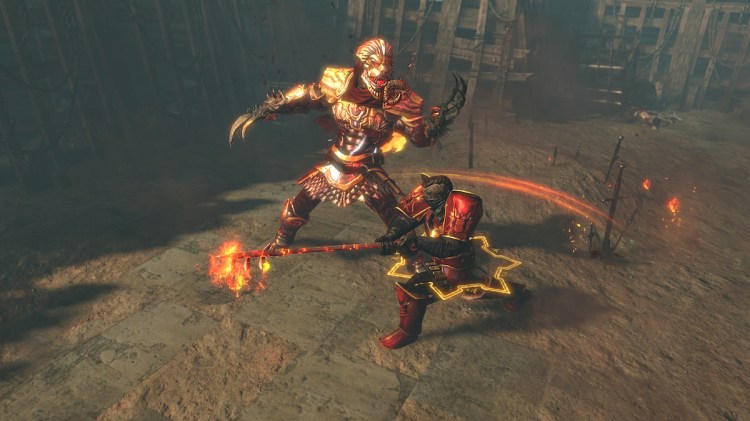
Above: Is this the roadmap for China?
One of the keys to having a partner such as Tencent in China is getting a company that gets the market. The approach is different there, such as the increased use of billboards and other public spaces for advertising to how you livestream your game for an audience increasingly watching on smartphones, not PCs.
“The nice thing about working with Tencent is they have all the infrastructure for that stuff. That’s their thing,” Rogers said. “It’s funny, with Tencent being such a giant company — the best marketing we can do is actually to the higher-ups at Tencent, to make them interested in marketing our game. That’s our goal. We need to make sure that they’re seeing our game, so they’re interested in spending more money on it.”
Wilson even has a story to show how Tencent markets its games to its own workers.
“One funny story. When we launched the alpha, we sent one of our server admins over to China so he could be hands-on to make sure things went well. He’s in the Tencent building. Everything’s in Chinese. He doesn’t really understand anything, and he needs to go to the bathroom,” Wilson said. “So he goes to the bathroom and in there is a giant Path of Exile ad, advertising the alpha to Tencent employees.”
Competitive spirit
Path of Exile is well suited for the Chinese market thanks to its competitive side. It has leaderboards and player-vs.-player combat, and as we discussed onstage at GamesBeat 2016, these are both important to players in China.
“We have a lot of PvP systems in Path of Exile that have relatively low engagement levels. Some people play PvP. But it’s sitting there, waiting for China to love it,” Wilson said. “There’s tournaments. There’s so much stuff we added with little fanfare. Players don’t really use it. It’s all sitting there, but we don’t talk about it much because it wasn’t so popular in the West. All it needs is the right audience.”

Above: I sure wouldn’t want to meet this archer in PvP combat.
And in the closed alpha, Grinding Gear did indeed see China was ready to love the PvP.
“They definitely did. They definitely have all the same drives in terms of doing the ladders and things like that,” Rogers said.
And just like with the skeletons, even this has to change for China. Its gamers like to show off by spending money, another thing we learned during our GamesBeat panel. Grinding Gear learned this, too.
“One of the interesting things we noted was that the economy and metagame were very different. Our game is known for not having gold in it,” Rogers said. Path of Exile is free-to-play, but the New Zealand company traffics in what it calls “ethical” in-game transactions, selling cosmetic upgrades to items and other things that don’t impact the gameplay.
“Because that alpha happened when we had prophecy being a new league, it meant that there was actually gold in the game for the first time, for these Chinese users. They standardized using gold coins as their trading currency, even though the game doesn’t normally have that. It was a weird situation,” Rogers said. “The economy evolved completely differently.”
Economic diplomacy
And this means Path of Exile’s approach to in-game transactions will need to evolve, too, in China.
“The business model will change to some degree in China. There are lots of discussions about this. We still want to make sure we’re not compromising too much. But yes, there will be things we would not put in the Western game,” Rogers said. “Things that — there are a lot of things we would consider pay-to-win that the Chinese market does not. They don’t see, oh, this item gives you 5 percent more experience, as pay to win. To me that’s crazy, but in China that’s accepted. There will be things that work differently there.”
And this leaves Rogers and Wilson with some mixed feelings.
“I’m not hugely keen on it. But at the same time, that’s the reality of the Chinese market to some extent,” Rogers said. “It’s not going to affect the players in the Western market at all. That’s very important to us.”
And the duo thinks Tencent is the right partner to help make it happen.
“Tencent are very respectful of the game’s goals,” Wilson said. “They say, ‘This is how we would do it ourselves,’ but we’re not going to do that in this case. What’s a compromise that retains as much of the game’s identity as possible?” Wilson said. “And then we work stuff out.”
Disclaimer: Grinding Gear Games’ Chris Wilson is not related to the writer despite sharing the same last name.
VentureBeat's mission is to be a digital town square for technical decision-makers to gain knowledge about transformative enterprise technology and transact. Learn More

